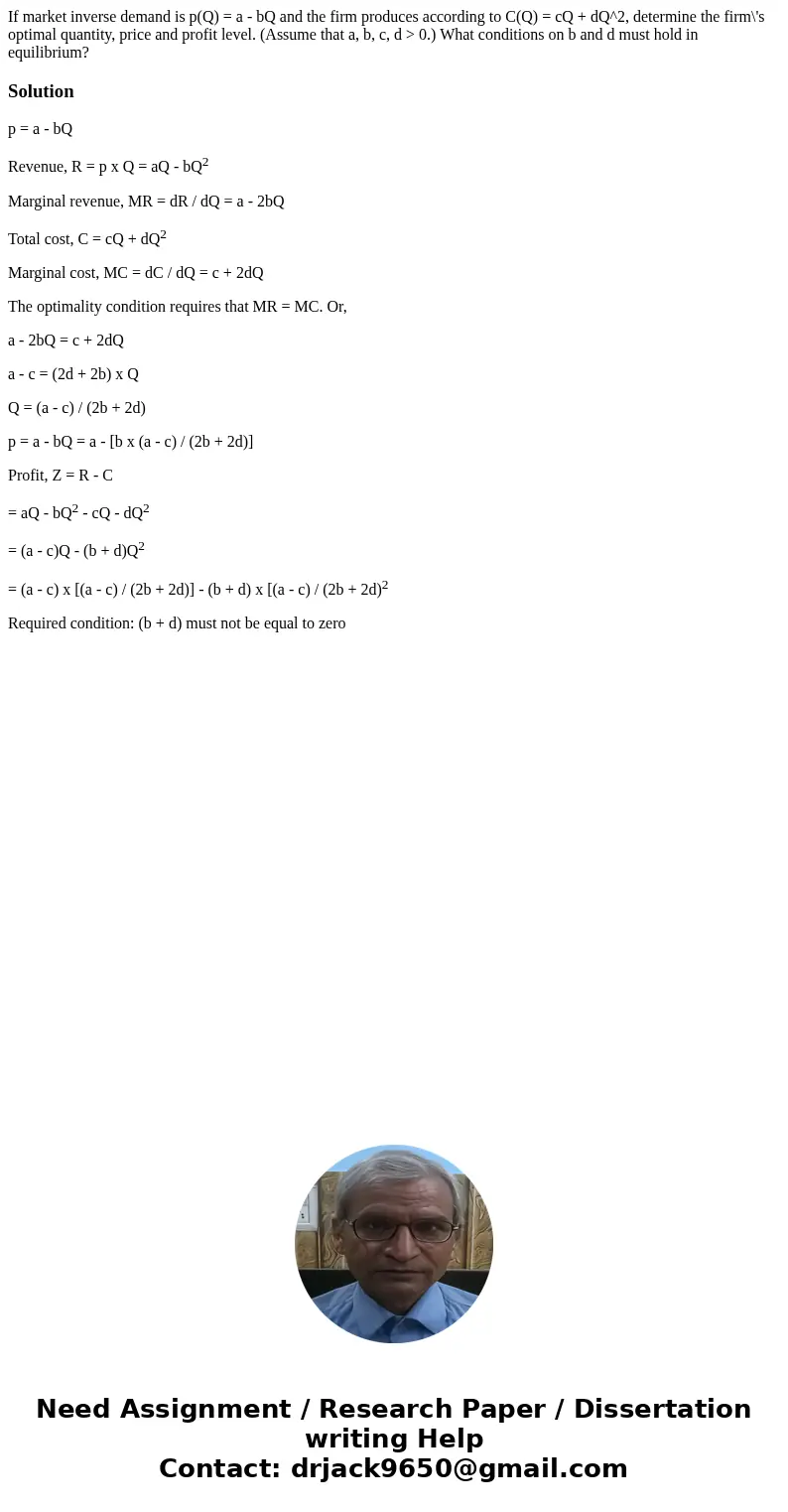If market inverse demand is pQ a bQ and the firm produces
If market inverse demand is p(Q) = a - bQ and the firm produces according to C(Q) = cQ + dQ^2, determine the firm\'s optimal quantity, price and profit level. (Assume that a, b, c, d > 0.) What conditions on b and d must hold in equilibrium?
Solution
p = a - bQ
Revenue, R = p x Q = aQ - bQ2
Marginal revenue, MR = dR / dQ = a - 2bQ
Total cost, C = cQ + dQ2
Marginal cost, MC = dC / dQ = c + 2dQ
The optimality condition requires that MR = MC. Or,
a - 2bQ = c + 2dQ
a - c = (2d + 2b) x Q
Q = (a - c) / (2b + 2d)
p = a - bQ = a - [b x (a - c) / (2b + 2d)]
Profit, Z = R - C
= aQ - bQ2 - cQ - dQ2
= (a - c)Q - (b + d)Q2
= (a - c) x [(a - c) / (2b + 2d)] - (b + d) x [(a - c) / (2b + 2d)2
Required condition: (b + d) must not be equal to zero

 Homework Sourse
Homework Sourse